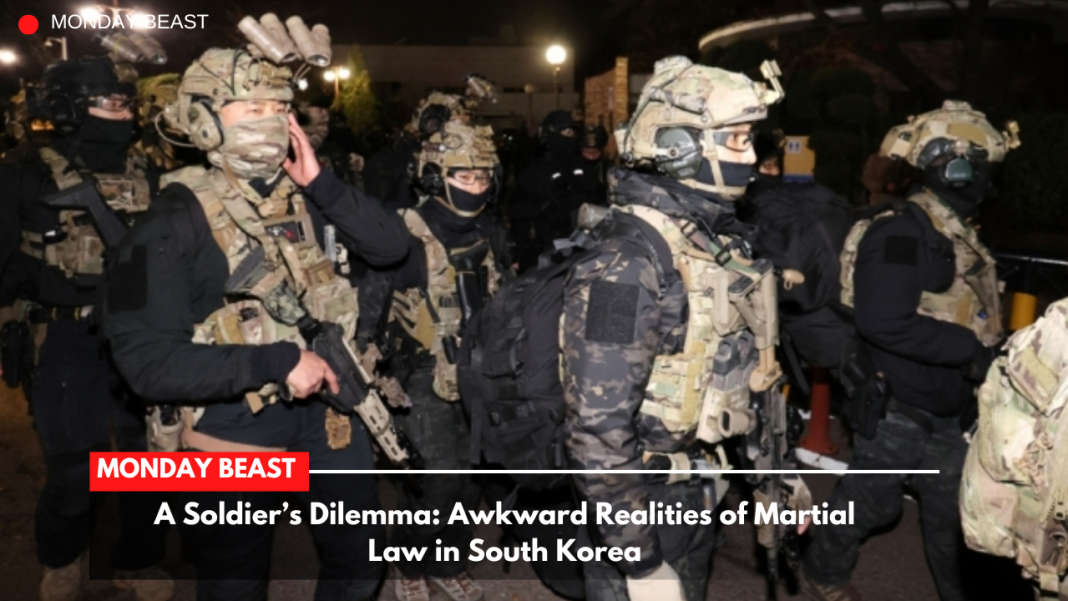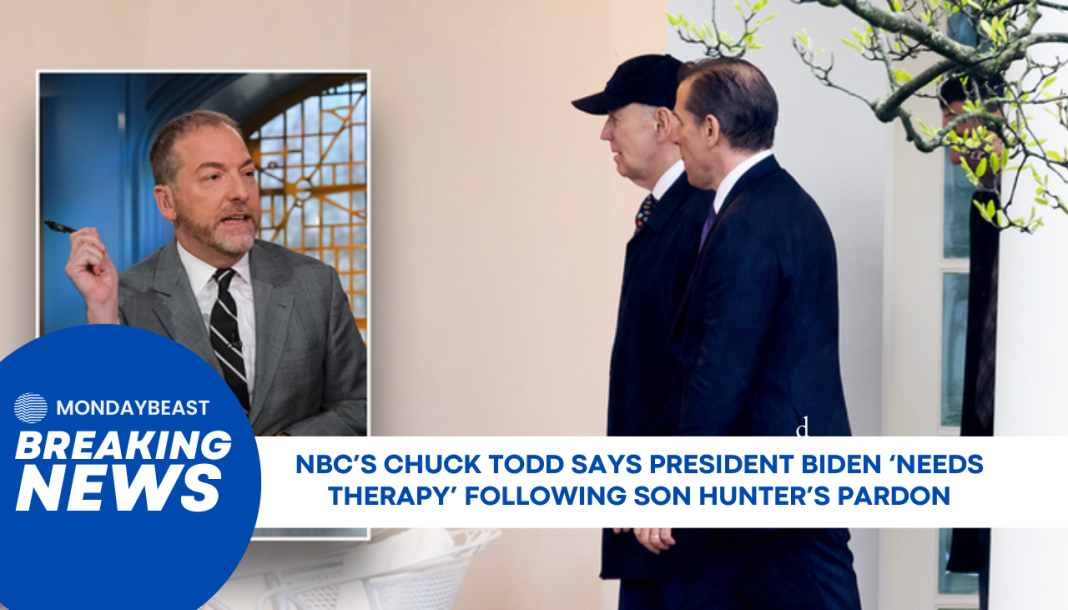The declaration of martial law
When South Korean President Yoon Seok-yeol declared martial law, the country felt a tremor of anxiety. This decision was not simply about maintaining order; it was a ripple through society. Questions flooded the minds of many. What if this escalates? What will happen next?
Also read
- Unexpected Hero: Actor Lee Gwan-hoon Confronts Martial Law Forces
- Actor Lee Gwan-hoon Confronts Martial Law: A Call for Calm
President Yoon imposed martial law around 10:23 p.m. and lifted it merely hours later at the National Assembly’s behest. The swift reversal left citizens curious and uneasy. Was this a necessary action, or a political maneuver?
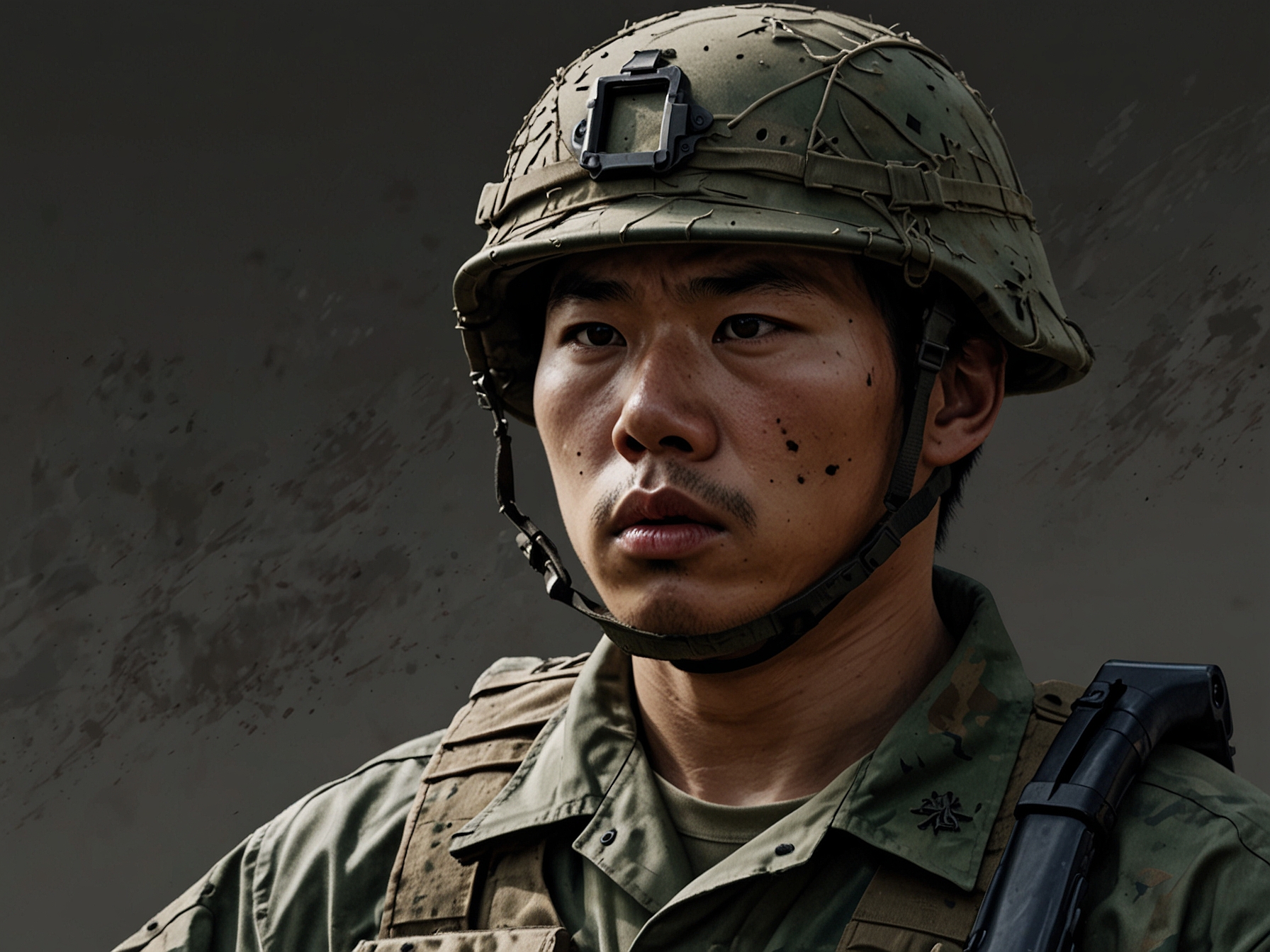
Martial law is a significant step. It enforces military authority over civilian life and usually deploys soldiers to maintain control during crises. But when the military is involved, can there be trust?
The elite troops in action
The martial law troops consisted of elite units, including the 1st Airborne Special Forces Brigade and the 35th Special Mission Battalion. They were prepared to act swiftly in case of terrorist threats or warfare. However, when the time came, their performance was surprisingly awkward.
Many photos showcased their tense movements. It was alarming to see this level of disarray from trained professionals. Reports indicated the troops weren’t even fully armed, carrying firearms loaded with mock ammunition.
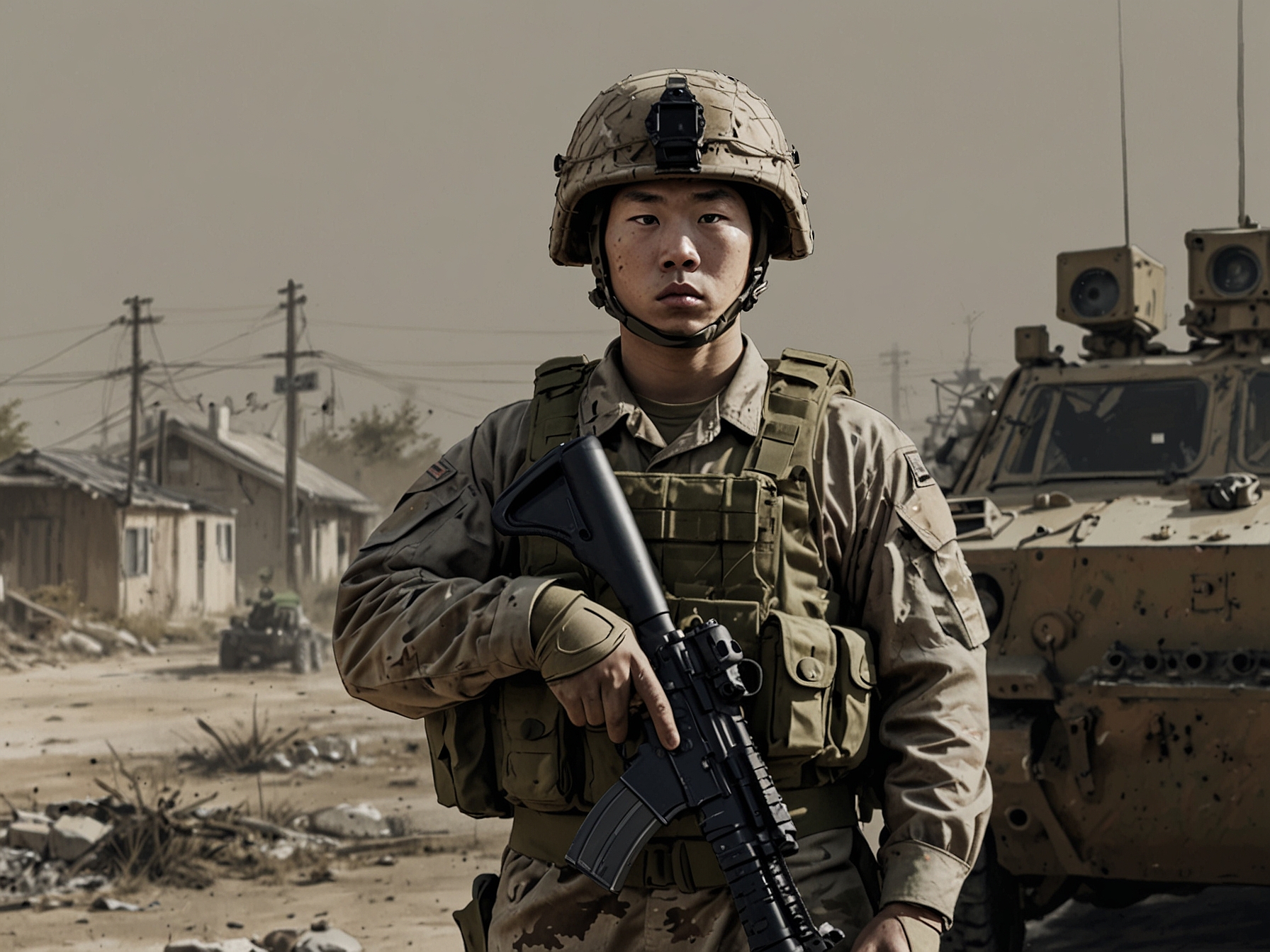
Observers questioned how soldiers could command authority when their actions seemed lackluster. What does this say about their training and resolve?
Criticism of martial law
Inside the military and among the public, cracks began to show. Many criticized the martial law decision, and soldiers grappled with a troubling dilemma: to follow orders while questioning the necessity of those orders. A military expert noted the presence of simulant bullets, often used for training.
These bullets cause bruising rather than life-threatening injuries. While safety is crucial, the implications here are profound. What message does it send when elite soldiers wield mock weapons? Does it diminish their credibility? It also raises uncomfortable questions about the legitimacy of martial law itself.
Emotional toll on soldiers
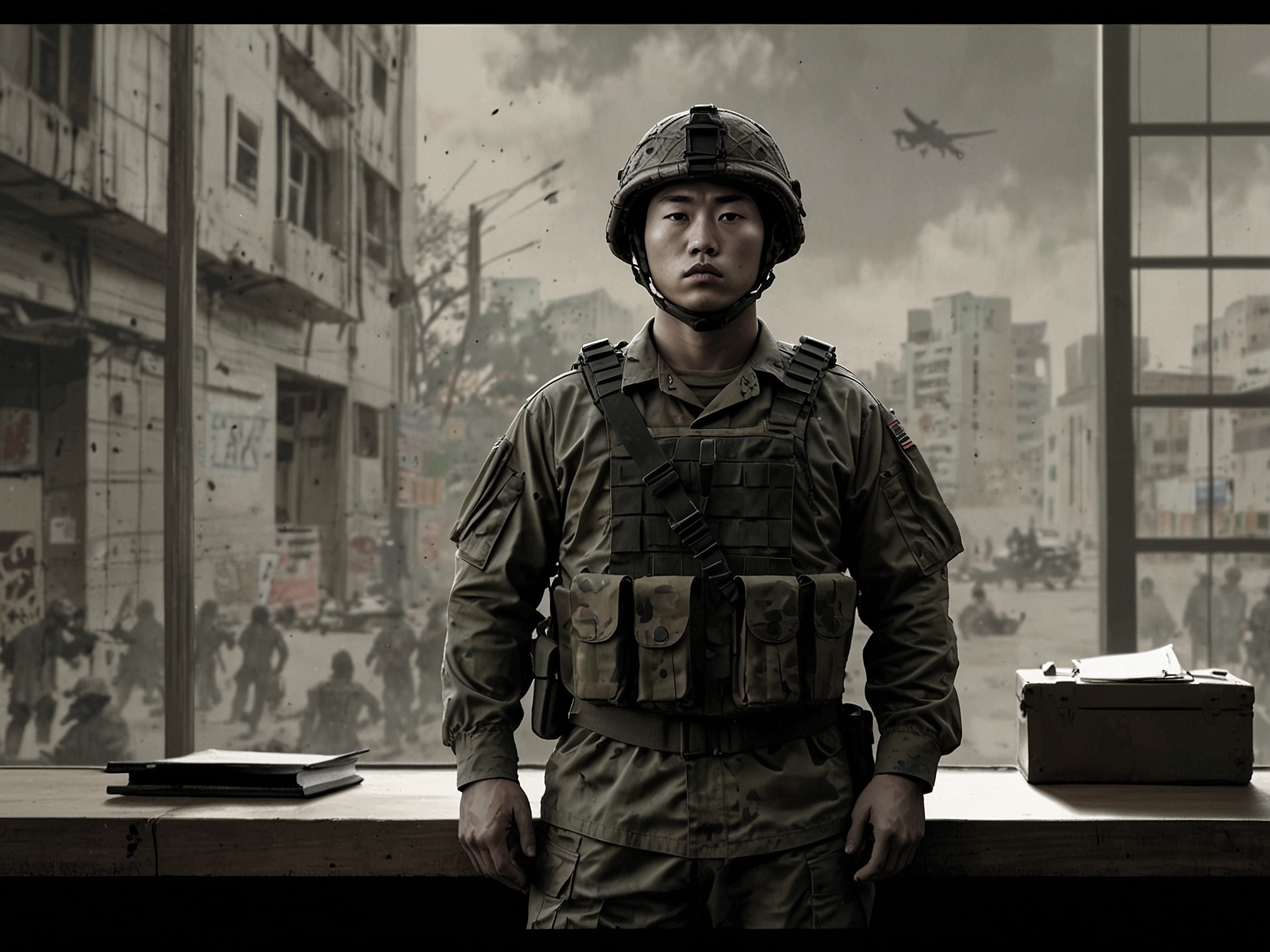
As reactions mounted, the emotional state of the soldiers came under scrutiny. Many soldiers felt conflicted. While they had sworn an oath to obey their commanders, the martial law situation felt alien, defying their understanding of duty and patriotism.
One operations officer shared feelings of skepticism, describing the sense of unease as he waited for orders at dawn. The military’s readiness remained, but with what purpose? Could this situation lead to lasting mistrust?
Soldiers should feel pride in their role. But how can they maintain that sentiment when pressing questions linger in their minds?
Public reaction and trust issues
Public opinion is crucial in a democracy. As martial law gripped the nation, trust in leadership was tested. The military’s awkward operations didn’t help reassure the public, leading people to wonder if their safety was truly the priority.
Critics questioned the motives driving martial law. Was it really about public safety, or were other agendas at play? President Yoon’s rapid reversal raised eyebrows, prompting a mix of relief and skepticism.
What does the government’s swift reaction mean for the future? Civil liberties are at stake. The intersection of politics and military action creates a daunting landscape for all involved.
Conclusion: A cautious path forward
As the dust settles, the implications of this martial law declaration unfold. Soldiers face a complex emotional landscape, navigating orders, ethics, and public perception. The situation serves as a reminder of the complexities and responsibilities that accompany military action.
Could future events lead to a clearer understanding of their roles? Perhaps enhanced training and dialogue can bridge the gap between command and execution. In an unpredictable world, hope remains.
Soldiers, civilians, and leaders must work hand in hand. Only through communication can we ensure that challenging situations do not repeat.
A call to reflection
Martial law is not to be taken lightly. As citizens, we should ponder its implications. The balance of authority and liberty raises crucial questions. How can we foster trust when faced with uncertainty? Only through thoughtful discussion and proactive steps can we build a safer future for all.

